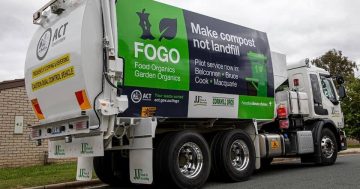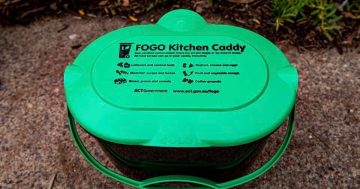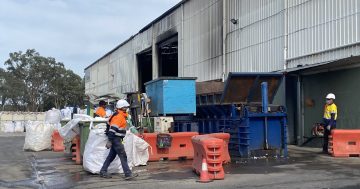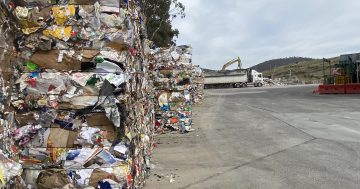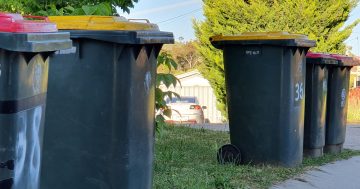
A FOGO collection truck. The trial is showing promising results but the delay is a blow to net zero by 2045, says Jo Clay. Photo: Chris Steel Facebook.
Despite the success of the ongoing food and garden organics (FOGO) program in some Belconnen suburbs, the rest of Canberra faces a long wait before it can benefit from the service.
Greens MLA Jo Clay grilled City Services Minister Chris Steel and a waste official in Budget Estimates hearings this week and they confirmed that it would be at least 2026 before the full city-wide service is rolled out of instead of the original target date of this year.
Mr Steel put this down to the fire at the Hume recycling facility, which has forced the government to make fast-tracking a new facility its priority, pushing back the procurement of its preferred large-scale composter.
Waste official Bruce Fitzgerald said the government was looking at smaller-scale solutions in the interim but the focus was on a long-term facility.
He said the ACT was talking to surrounding councils about their FOGO solutions, but authorities such as Sydney City Council were in a different situation given it was mainly dealing with food waste from multi-unit dwellings and does not have the large amount of garden waste that the ACT has.
“So we do need to work with the diversity of our particular situation and make sure we’re putting in a solution that lasts for many decades to come,” Mr Fitzgerald said.
Mr Steel said feasibility studies had recommended a large-scale composting facility as the best solution.
But Ms Clay said the delay would have a serious impact on the ACT’s bid to reduce greenhouse gas emissions to net zero by 2045, given waste taken to landfill in 2026 would still be emitting emissions in 2046.
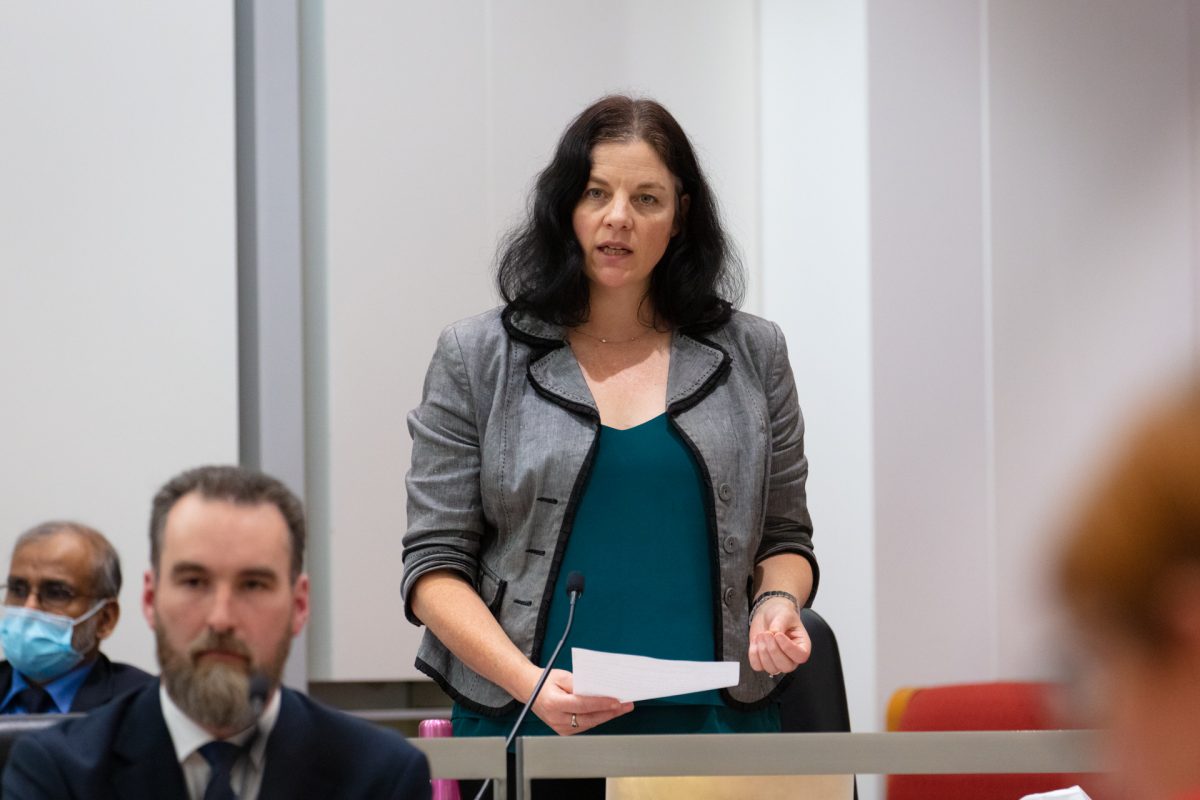
Greens MLA Jo Clay: “Organic waste accounts for almost one-tenth of our emissions, so we cannot delay action to reduce its impact.” Photo: Thomas Lucraft.
Mr Steel said the FOGO trial results showed it was still possible to meet the National Waste Action Plan target of halving the amount of food waste organics going into landfill by 2030.
He said the latest waste audit revealed that in the trial suburbs the amount of food waste in garbage bins had more than halved, down to just 15.9 per cent from 39.4 per cent in 2014.
“So once that is rolled out, albeit it at a later point in time, we expect there will be an immediate reduction,” he said.
The audit also showed that the weight of landfill bins dropped from 9.8 kg to 4.2 kg.
Mr Fitzgerald said waste would make up a large proportion of ACT emissions in the latter part of the decade so waste managers were very conscious of what may be possible to cut these emissions, including looking at smaller-scale alternatives and recovering more methane from landfill.
But Ms Clay said after the hearing that the government should be working harder to find these alternative FOGO solutions.
“We’re in a climate crisis,” she said. “Organic waste accounts for almost one-tenth of our emissions, so we cannot delay action to reduce its impact,” she said.
“The government yesterday acknowledged that quicker rollout of FOGO would bring instant emissions reductions. The longer we leave it, the longer we will see emissions from landfill.”
Ms Clay said the ACT had a thriving local compost sector and it could move to reduce FOGO going to landfill earlier if the government looked at interim options that didn’t rely on a large specialist composter.
“The City of Sydney is finding innovative solutions to prevent FOGO going to landfill, for instance they’ve announced they’ll process household food waste via insect farming,” she said.
“While claiming to look at alternative options, the government continues to procure contracts that will see no action until late this decade.”
Mr Steel said ongoing evaluation of the FOGO trial would continue so lessons learned could be applied to its eventual extension and changes made where appropriate.












